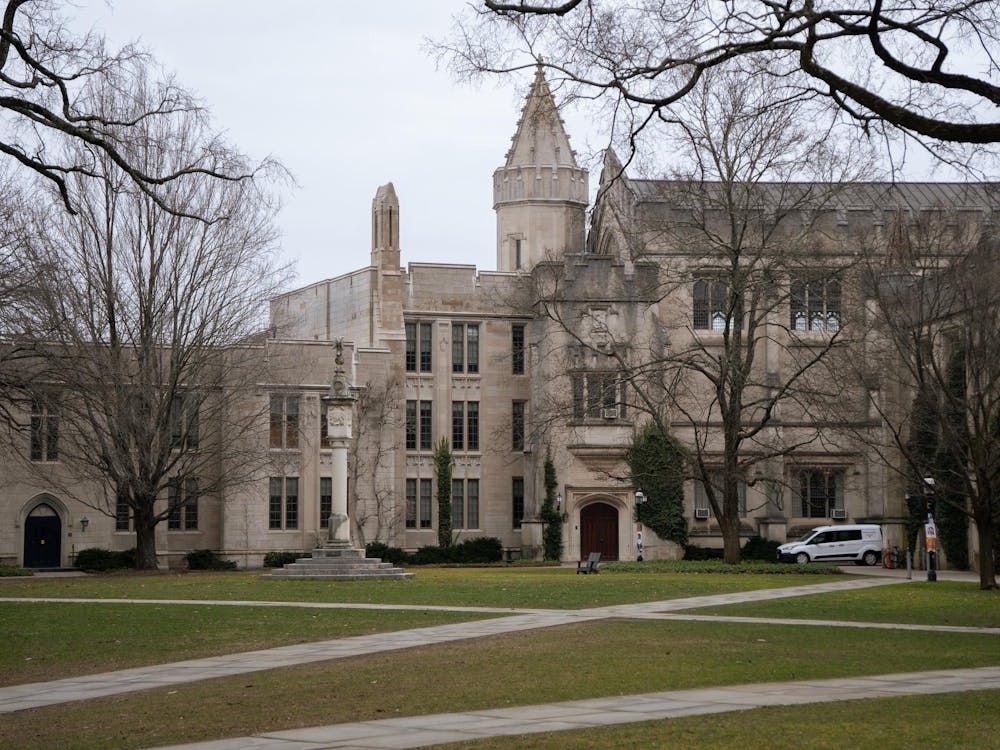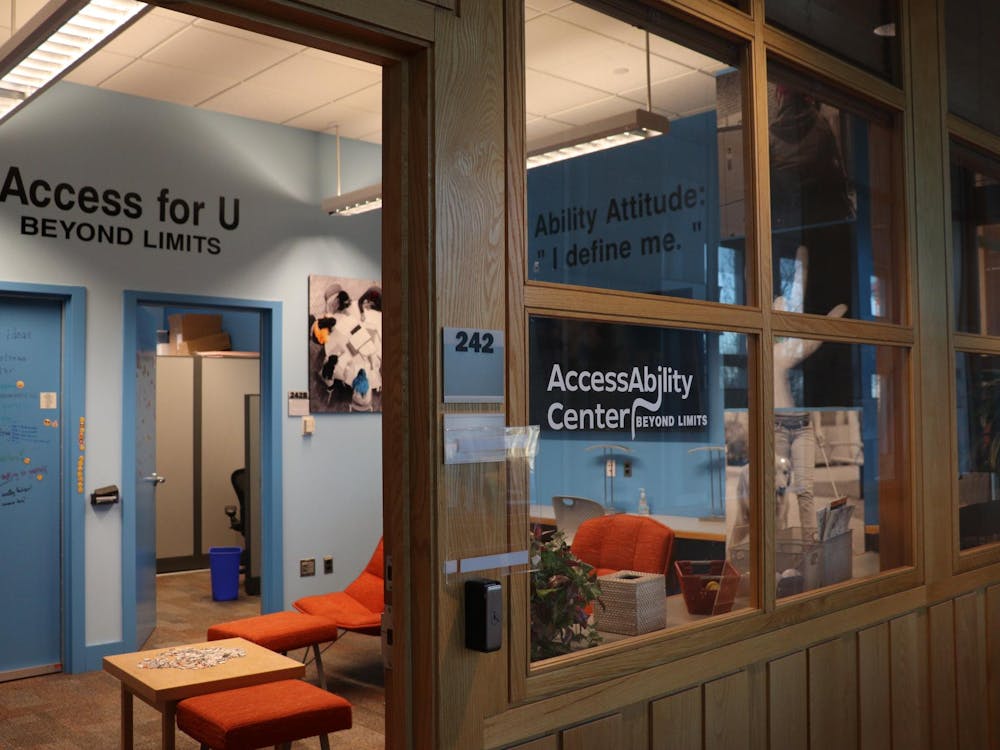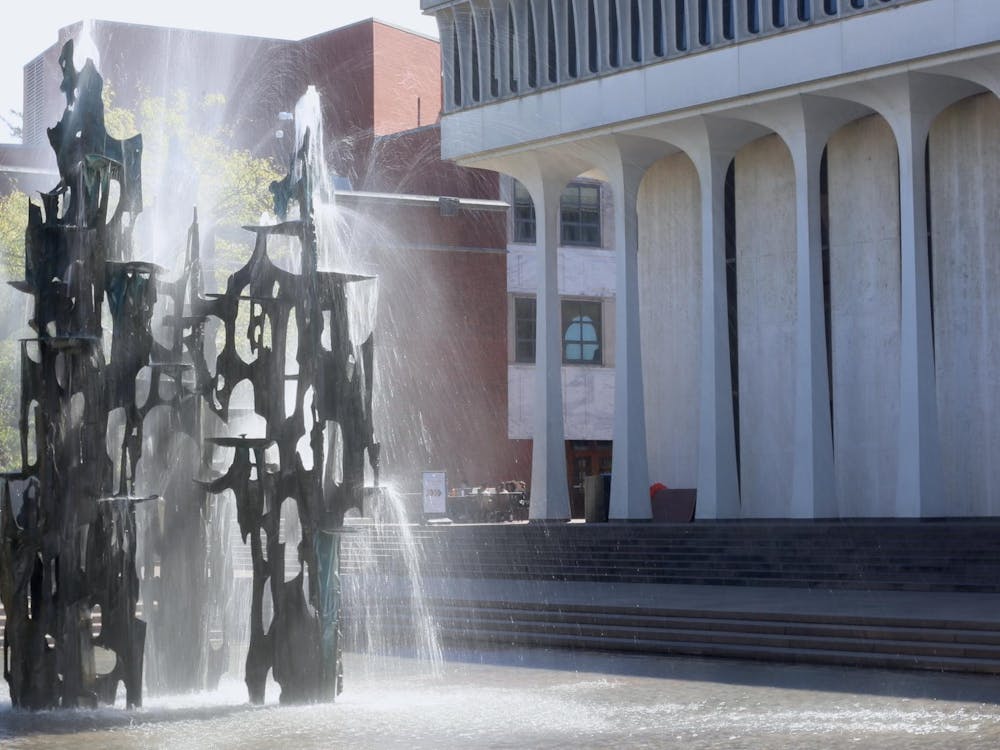When H.S.H Prince Hans Adam II of Liechtenstein was a child in 1956, his family housed Hungarian refugees in its palaces.
In the 1970s, the prince followed with great interest the birth of independent African nations.
And as the next step in what has been a lifelong commitment to resolving international conflicts, the prince officiated at the opening exercises for the University's Liechtenstein Institute on Self-Determination, held before a capacity crowd in Dodds Auditorium on Sunday.
The institute will foster research, publication and teaching on self-determination, state sovereignty, and related socio-cultural and economic issues.
Though several dignitaries —including Sen. Claiborne Pell of Pell Grant fame and former University President Goheen — were in attendance at the event, it was Prince Hans Adam II who held the audience's attention, speaking candidly about his long-standing interest in self-determination.
"I was born with this interest," said the prince, who donated $12-million to the institute in June. Prince Hans Adam II said the contrast between the violent conflicts waged internationally and the peace that prevailed within Liechtenstein stung him throughout his life.
"We have to acknowledge the fact that states were created by humans to serve humans and not the other way around," he said. "We have to replace the weapon in the hand with the ballot paper in the hand," he added, in an unwitting nod to the current presidential election controversy that provoked a wave of gentle laughter from the audience.
"The institute has to change the way we look at self-determination. Perhaps our grandchildren will look at the subject in a very different way than we do," said the prince, who recently welcomed his fifth grandchild.
Wolfgang Danspeckgruber, founding director of the Liechtenstein institute and a Wilson School lecturer, also said he will look to the institute to help create a kinder, gentler — or at least more peaceful — world.
"Self-determination has been one of the major causes . . . of humanitarian crises in the post-Cold War era," Danspeckgruber said. The institute will study issues of self-determination of states and their boundaries, he said, issues "that have dominated the international community."
Danspeckgruber — who along with the prince laid the foundations for the institute in the 1990s during international conferences — thanked the prince, "without whose interest, intellect, desire and vision I would not have undertaken so much [and] without whose generosity we would not be here today."
"The peaceful resolution of claims to communal self-determination is a vital issue of international public policy," said Michael Doyle, director of the University's Center of International Studies.

"It's quite appropriate that the institute be a part of the Woodrow Wilson School because Woodrow Wilson himself was so [involved] with the idea of self-determination," said Wilson School dean Michael Rothschild. The topic does not always fit into other areas of study, he said, "but as any Rwandan can tell you, it's always there."
Drawing on Princeton's tradition of fostering undergraduate education, Rothschild said he hoped University students — as well as the international community as a whole — would benefit from the institute's efforts.
"The learning-by-doing and learning-by-seeing aspects of this program . . . have been wonderful and I trust will continue," he said.
President Shapiro also referred to the value of individual effort. "In the face of all these complexities," he said, "people do make a difference. I want to express my thanks and the University's thanks to all those who are making a difference with this project."
Following the opening ceremonies, the institute made good on its promise to foster rigorous discussion of self-determination with a panel titled "Religious Dimensions of Self-Determination and State: Concepts, Perspectives, Propositions."
The panel reflected the institute's international intent, involving religious leaders from diverse faiths, countries and traditions.
As panel participant Rabbi Arthur Schneier, of Park East Synagogue in New York City, said, "Live and let live. That's the best advice I can give all of you."








